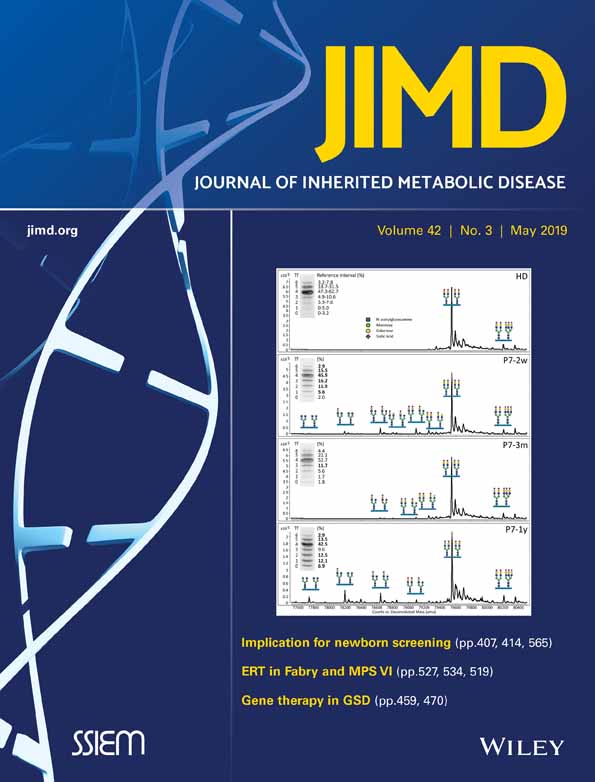Gene therapy prevents hepatic tumor initiation in murine glycogen storage disease type Ia at the tumor-developing stage
Funding information Eunice Kennedy Shriver National Institute of Child Health and Human Development; Children's Fund for Glycogen Storage Disease Research
Abstract
Hepatocellular adenoma/carcinoma (HCA/HCC) is a long-term complication of glycogen storage disease type-Ia (GSD-Ia), which is caused by a deficiency in glucose-6-phosphatase-α (G6Pase-α or G6PC), a key enzyme in gluconeogenesis. Currently, there is no therapy to address HCA/HCC in GSD-Ia. We have previously shown that a recombinant adeno-associated virus (rAAV) vector-mediated G6PC gene transfer to 2-week-old G6pc−/− mice prevents HCA development. However, it remains unclear whether G6PC gene transfer at the tumor developing stage of GSD-Ia can prevent tumor initiation or abrogate the pre-existing tumors. Using liver-specific G6pc-knockout (L-G6pc−/−) mice that develop HCA/HCC, we now show that treating the mice at the tumor-developing stage with rAAV-G6PC restores hepatic G6Pase-α expression, normalizes glucose homeostasis, and prevents de novo HCA/HCC development. The rAAV-G6PC treatment also normalizes defective hepatic autophagy and corrects metabolic abnormalities in the nontumor liver tissues of both tumor-free and tumor-bearing mice. However, gene therapy cannot restore G6Pase-α expression in the HCA/HCC lesions and fails to abrogate any pre-existing tumors. We show that the expression of 11 β-hydroxysteroid dehydrogenase type-1 that mediates local glucocorticoid activation is downregulated in HCA/HCC lesions, leading to impairment in glucocorticoid signaling critical for gluconeogenesis activation. This suggests that local glucocorticoid action downregulation in the HCA/HCC lesions may suppress gene therapy mediated G6Pase-α restoration. Collectively, our data show that rAAV-mediated gene therapy can prevent de novo HCA/HCC development in L-G6pc−/− mice at the tumor developing stage, but it cannot reduce any pre-existing tumor burden.
CONFLICTS OF INTEREST
J.-H.C., Y.M.L., M.F.S., B.C.M., and J.Y.C. declare that they have no conflicts of interest.




